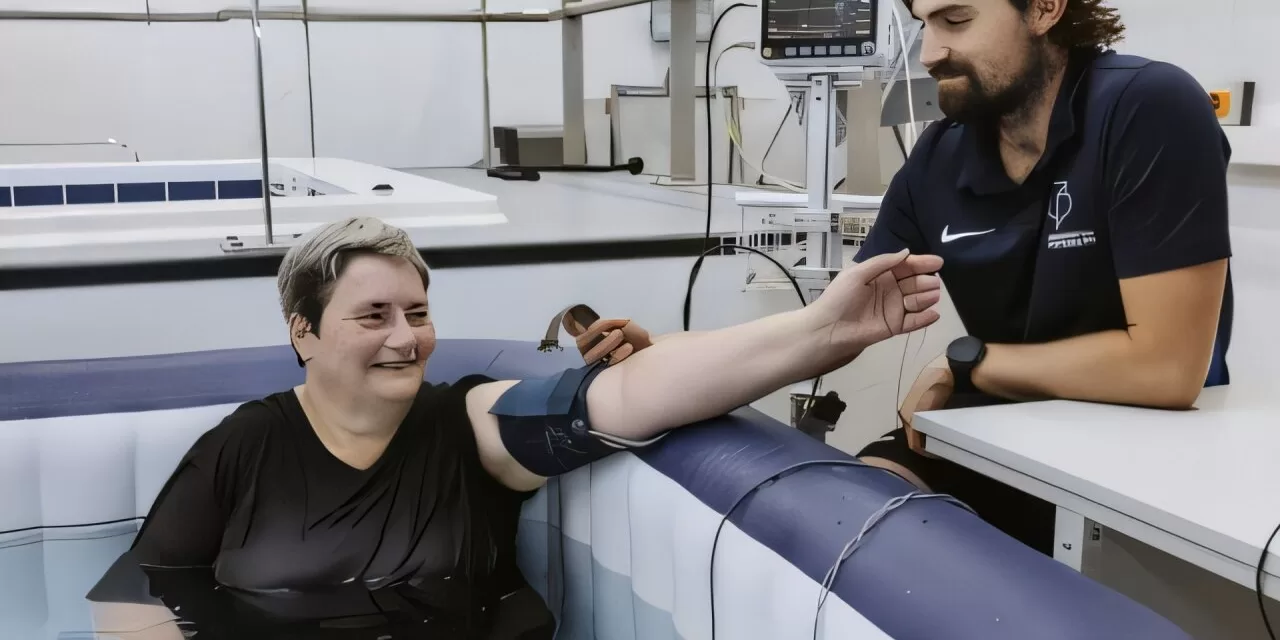New research reveals that hot water immersion may improve insulin sensitivity, heart health, and blood pressure in people with type 2 diabetes.
A groundbreaking study from the University of Portsmouth suggests that regular hot tub therapy could offer significant health benefits for individuals with type 2 diabetes. The small-scale study found that immersing participants in 40°C water for one hour, eight to ten times over a two-week period, improved insulin sensitivity, reduced blood pressure, and made the heart work more efficiently.
Results of the research were published in the Journal of Thermal Biology and the American Journal of Physiology-Endocrinology and Metabolism. This marks the first study of its kind to demonstrate that repeated exposure to hot water can make the insulin produced by the body work more effectively. Although glucose levels remained unchanged, insulin levels were notably lower after the treatment.
Dr. Ant Shepherd, corresponding author from the University’s School of Psychology, Sport and Health Sciences, highlighted the importance of these findings: “People with diabetes have high levels of sugar, which is what characterizes the disease. What we want to do as scientists is lower those sugar levels.”
He added, “There are ways to achieve this through diet, exercise, or medication, but these approaches can have barriers. This study shows that hot tub therapy could be a viable alternative, making participants’ bodies more sensitive to insulin. This reduces the burden on the pancreas, which is crucial for long-term health in those with type 2 diabetes.”
The Study: Methods and Results
The research involved 14 participants with type 2 diabetes who underwent monitored hot water immersion in a laboratory setting. Participants’ deep body temperature, blood pressure, and heart rate were tracked every 15 minutes to ensure safety, with a target inner body temperature of 38.5 to 39°C.
Dr. Thomas James, lead author of the study, explained, “We also found that participants burned fewer calories during the study, meaning their bodies became more efficient at rest. While this may seem counterintuitive, greater efficiency at rest likely improves their ability to handle physical activity, like walking up stairs or playing with grandchildren.”
The therapy also resulted in measurable cardiovascular improvements. Participants exhibited lower blood pressure and reduced heart strain, even days after the hot tub sessions.
Dr. James elaborated on this effect: “When the body is exposed to heat, it adapts by lowering resting body temperature and energy demands. This reduces the amount of oxygen the heart needs to deliver, making the heart work less hard and lowering blood pressure.”
He compared the process to reducing water flow through a hosepipe: “When the flow decreases, the pressure inside the hose drops. Similarly, reduced heart strain means lower pressure in blood vessels.”
A Promising Path Forward
While the results are promising, researchers emphasized the need for further studies with larger sample sizes to confirm the findings and fully understand the broader implications. Dr. Shepherd remains optimistic: “This study highlights an exciting possibility for managing type 2 diabetes with innovative heat therapy. Beyond blood sugar control, it could improve heart health and overall well-being for those living with the disease.”
Future Research
The researchers hope that larger studies will reinforce the potential benefits of hot tub therapy, paving the way for its integration into diabetes management programs. If proven effective, this simple and non-invasive treatment could provide an accessible option for people struggling to manage type 2 diabetes through traditional methods.
More Information:
Journal of Thermal Biology: DOI: 10.1016/j.jtherbio.2024.104017
American Journal of Physiology-Endocrinology and Metabolism: DOI: 10.1152/ajpendo.00222.2023












